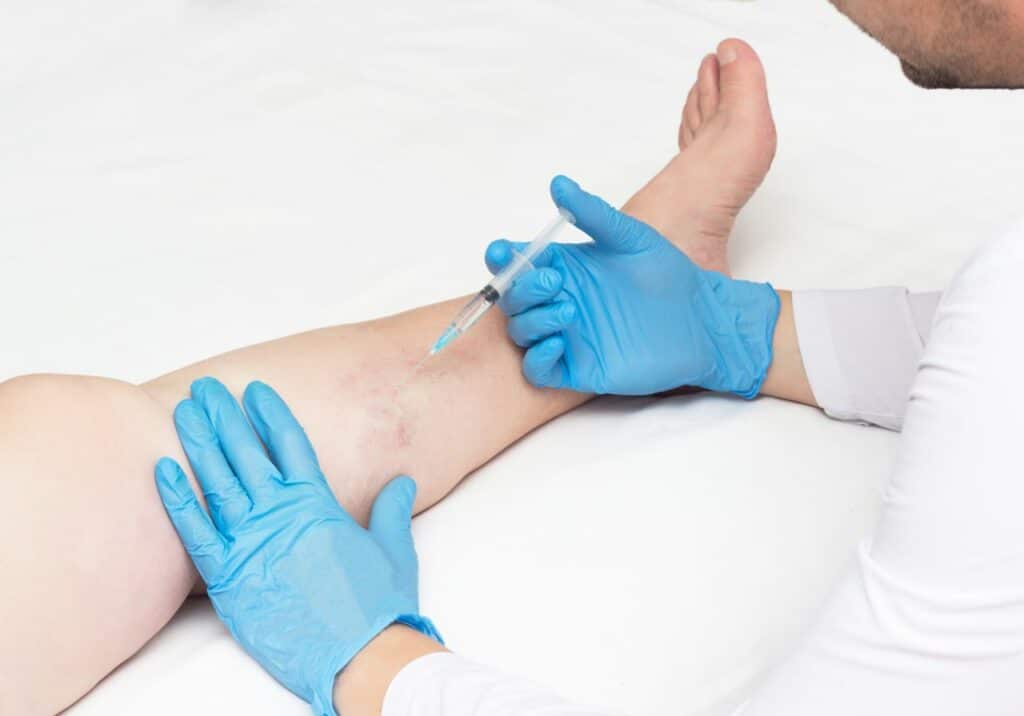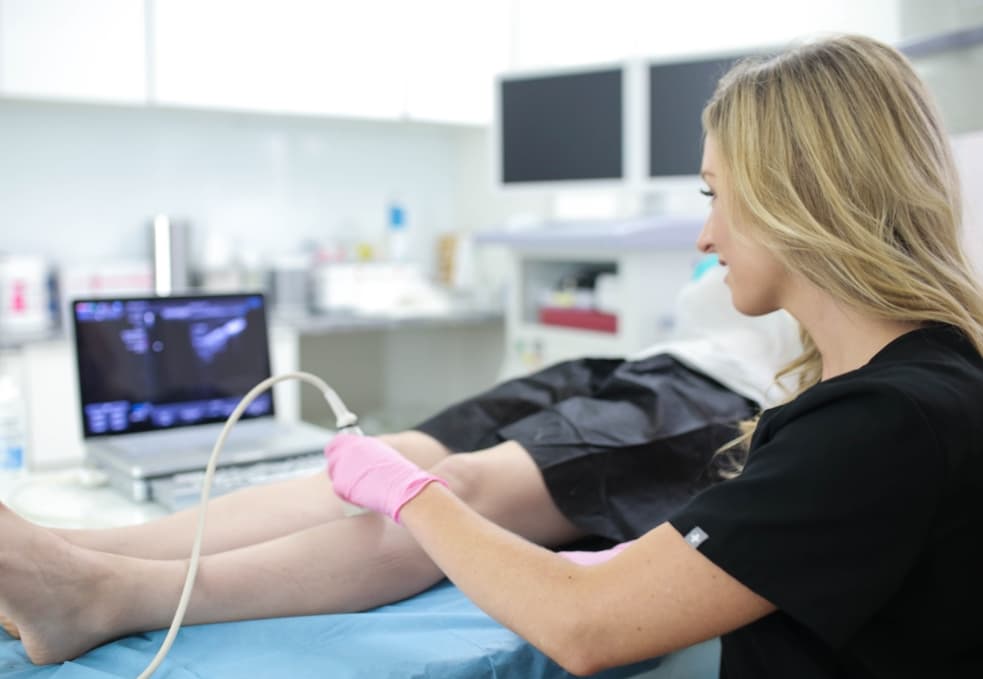How long does it take to recover from vein ablation?
Endovenous ablation, also known as vein ablation, is a minimally invasive procedure that uses thermal or laser energy to collapse the diseased saphenous vein responsible for your vein problems. Once the diseased vein is destroyed, the accumulated blood reroutes into healthier leg veins, restoring optimal blood circulation to the heart. Vein ablation treats the root cause of spider veins, varicose veins, and most other vein problems, and it involves no downtime.
Vein ablation is a minimally invasive and outpatient procedure, which means you can resume your daily activities and work immediately. As for the recovery period, you may experience mild redness, swelling, discomfort, irritation, tenderness, and bruising around the treatment area for 2 to 4 days, following which the side effects will dissipate. As such, vein ablation doesn’t involve any downtime, and the recovery period is minimal.
Our state-of-the-art vein centers in Long Island provide highly-personalized vein ablation procedures based on your unique conditions. We ensure optimal and safe results without harsh side effects or complications. Most of our patients seek vein ablation treatments during their lunch break, following which they resume their daily activities. If you have spider veins, varicose veins, or other vein problems, please schedule an appointment today.

What can you not do after vein ablation?
Vein ablation involves minimal activity limitation. It’s an outpatient procedure without any professional or social downtime, so you can resume most of your daily activities immediately. But you should avoid activities that place pressure on your leg veins, such as strenuous workouts, running, bicycle riding, swimming, or heavy lifting. You should also avoid sitting or standing in one place for long periods — walk around frequently.
Can I walk after vein ablation?
Vein ablation is a simple, in-office procedure without hospitalization, downtime, or activity restrictions. You can start walking immediately after your vein ablation treatment. In fact, your vein doctor will ask you to walk for at least 30 minutes per day to ensure optimal blood circulation. If you have a desk job or occupation that involves long periods of sitting or standing still, please take frequent breaks to walk around.
How long will the leg be sore after vein ablation?
You may experience mild stiffness and soreness in your legs for 1 to 2 weeks after your vein ablation. This is a perfectly normal part of the recovery process, and the soreness isn’t severe enough to restrict your daily activities. Some people also overcome leg soreness after a few days. Your vein doctor will provide pain medications to alleviate leg soreness and discomfort.
How painful is vein ablation?
Vein ablation causes minimal pain and discomfort during the treatment. The vein doctor will administer a local anesthetic before making an incision on the skin’s surface, so you’ll only feel a little pinch and pressure. Once the catheter is driven into the diseased vein, the vein doctor will deliver tumescent anesthesia to numb the surrounding tissues, ensuring optimal comfort. You may experience mild post-treatment discomfort and soreness, but that can be managed with pain medications and ice packs.
Should I elevate my leg after vein ablation?
Yes, you should elevate your legs above the heart’s level after your vein ablation. You should ideally elevate your legs for at least 5 to 10 minutes at a stretch around 3 times a day and for a total of one week. If you have a desk job, elevate your legs on a chair or desk, and if you’re in bed, prop your legs on a couple of pillows. When you elevate your legs, gravity forces the blood in your legs to flow towards the heart, thus minimizing the risk of vein disease recurrence. Furthermore, elevating your legs will also alleviate your discomfort and minimize swelling.
Does vein ablation help circulation?
Vein ablation helps circulation by destroying the diseased saphenous vein responsible for your circulation problems. Chronic venous insufficiency is a medical condition wherein the collapse of vein valves leads to the accumulation of blood in leg veins. This condition prevents your blood from flowing freely towards the heart, leading to numerous circulation problems. Vein ablation uses thermal or laser energy to destroy the diseased vein, thus rerouting the accumulated blood into healthier leg veins. This procedure improves blood circulation.
How often should you walk after vein ablation?
Walking is an essential part of the recovery process after vein ablation. You will be encouraged to start walking immediately after your vein ablation. You should walk for at least 30 minutes a day for the next couple of weeks, but it’s a good idea to walk even more, if possible.
What happens to blood flow after vein ablation?
During vein ablation, the vein doctor destroys the diseased saphenous vein that’s responsible for trapping blood in the leg veins. Once the diseased vein is destroyed, the accumulated blood reroutes into healthier leg veins, automatically restoring optimal blood flow to the heart.
Is vein ablation permanent?
Yes, vein ablation is a permanent procedure that produces lifelong results. Once the diseased vein is destroyed, it can never regrow or return, so the results are permanent. You can develop chronic venous insufficiency again, but that will be because of another dysfunctional vein — not the same vein.
For more information about vein ablation and other minimally invasive spider vein and varicose vein treatments, please schedule an appointment at our vein center in Long Island.

